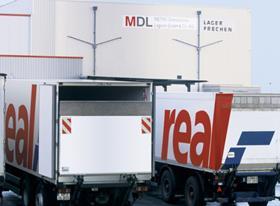
German Retailer Metro AG has announced that it is to consolidate its cross-divisional logistics activities under one management structure, with the new Metro Logistics arm to be responsible for handling logistics services of sales divisions in both Germany and international markets.
According to the group, the realignment of logistics operations will allow the company to 'significantly simplify' its supply chain management and offer improved logistics services to its sales divisions, in particular Metro Cash & Carry and Real.
The restructured setup will comprise of two operational units – Metro Logistics Germany, which will oversee warehouse and distribution logistics as well as procurement logistics in Germany and neighbouring countries, and Metro Logistics International Supply, which will focus on international operations.
'With the organisational restructuring of the cross-divisional logisticsactivities we will achieve enhanced operational processes and more efficient cost structures. This allows us to directly support the business of the sales divisions', explained Janssen Lok, the new CEO of Metro Logistics. 'With Metro Logistics,we are in addition also aligning ourselves more with strategic activities such as delivery and e-commerce that are heavily dependent onoptimal supply chain management'.
Meanwhile, Metro has said that it is implementing a new organisational structure for Makro Cash & Carry in both Spain and Portugal, with both local head offices and management to be integrated into a new central headquarters in Madrid.
Large parts of Makro Portugal will be moved and integrated into its Spanish counterpart, with the ultimate goal of improving competitiveness and increasing synergies between the organisations. At the same time, the group's Portuguese store in Aveiro will close.
'In Portugal, we want to return to a solid, sustainable and future growth path for our wholesale business', said Frans Muller, CEO of Metro Cash & Carry.'We firmly believe that the integration will lead to efficient processes, a leaner administration, the increase of buying synergies, bundling of expert know-how in one organisation and the reduction of costs of several million Euros. This step will make both countries more forceful prospects.'






No comments yet